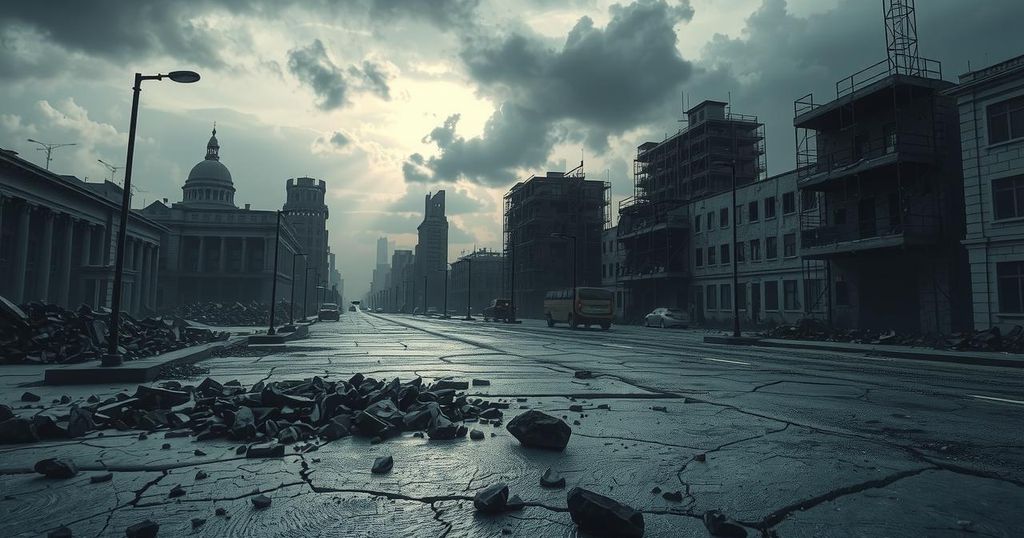World news
AFRICA, BELGIUM, CIVIL WAR, CONGO (KINSHASA), CORN, CORNEILLE NANGAA, DEMOCRACY, DEMOCRATIC REPUBLIC OF CONGO, DRC, EUROPE, FELIX TSHISEKEDI, GOMA, HUMANITARIAN, KINSHASA, KIVU, M23, MILITARY, NBC NEWS, NORTH AMERICA, RWANDA, SOUTH KIVU, TEXAS, TSHISEKEDI, U. S, UNITED NATIONS, UNITED STATES, WAR
Daniel O'Connor
0 Comments
Escalating Conflict in the DRC: The M23 Insurgency and Its Global Implications
The DRC faces an escalating conflict led by the M23 rebel group, which seeks to expand its territory amidst a history of violence dating back to its independence. This insurgency has displaced over 400,000 individuals and resulted in severe humanitarian crises. President Tshisekedi condemned M23’s actions as a war declaration by Rwanda, raising concerns about international responses and the geopolitical implications tied to the DRC’s mineral wealth.
The Democratic Republic of Congo (DRC) is currently experiencing a resurgence of violence due to a deadly insurgency led by the M23 rebel group, which is seeking to extend its territorial control southward from Goma. The conflict, part of a decades-long struggle, has escalated dramatically, prompting warnings from the United Nations that the situation could spiral into a broader regional war. In the wake of M23’s recent gains, including the takeover of Goma, there are increasing calls for action from the Congolese government.
The DRC, rich in minerals crucial for technology such as smartphones and electric vehicle batteries, has faced a prolonged history of conflict, including two major wars between 1996 and 2003 that resulted in millions of civilian casualties. The current violence has led to the displacement of over 400,000 people within a month and has had severe repercussions for Goma, where bodies clutter the streets amid resource shortages, and several UN peacekeepers have been killed.
In response to the deteriorating situation, President Félix Tshisekedi has labeled the M23 offensive as a “declaration of war” from Rwanda, implicating its influence in the conflict. World responses have varied, with Western nations under scrutiny for their relatively subdued reactions. U.S. citizens have been advised to evacuate, as the muted response risks providing opportunities for non-Western powers, such as China and Russia, to expand their influence in the DRC.
The ongoing conflict in the DRC can be traced back to its independence from Belgium in 1960 and has been exacerbated by ethnic tensions, particularly involving the Tutsi and Hutu groups. The M23 rebel group emerged in 2012, consisting primarily of ethnic Tutsi, and has been linked to Rwandan military support, fueling further hostilities. The DRC is rich in cobalt, making it critically important to global supply chains for technology, which adds complexity to international responses to the conflict and highlights the geopolitical stakes involved.
The resurgence of violence in the DRC is alarming, with M23’s actions threatening to destabilize the region further. While the Congolese government mobilizes for a counter-offensive, the international community’s response is under scrutiny as opportunities for competing influences loom large. The intricate ties between resource wealth and conflict will likely shape future developments in this crisis, which demands urgent attention and coherent strategies from global powers.
Original Source: www.nbcnews.com




Post Comment